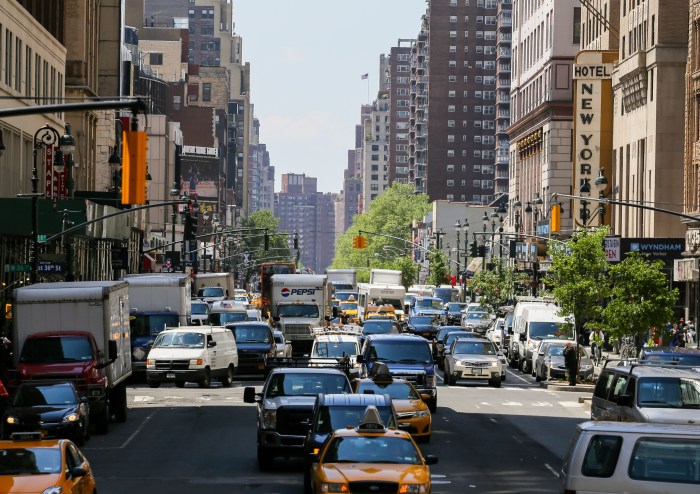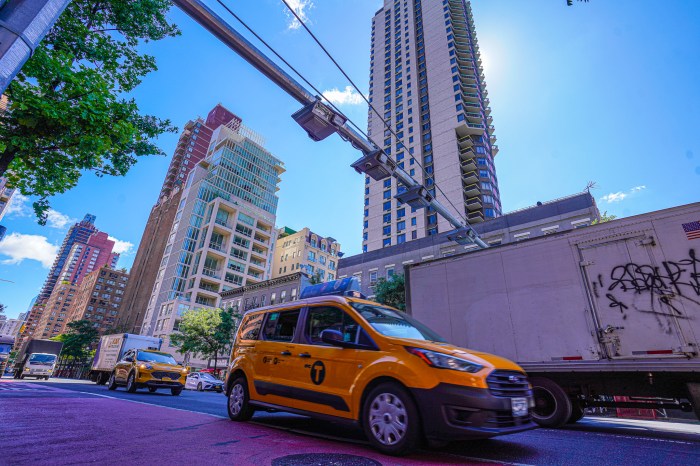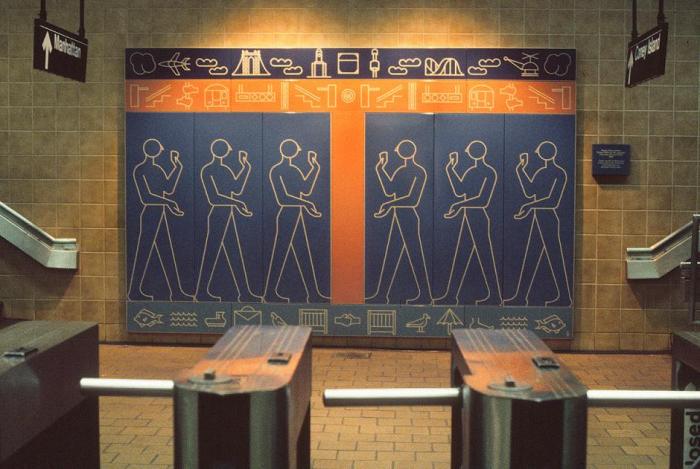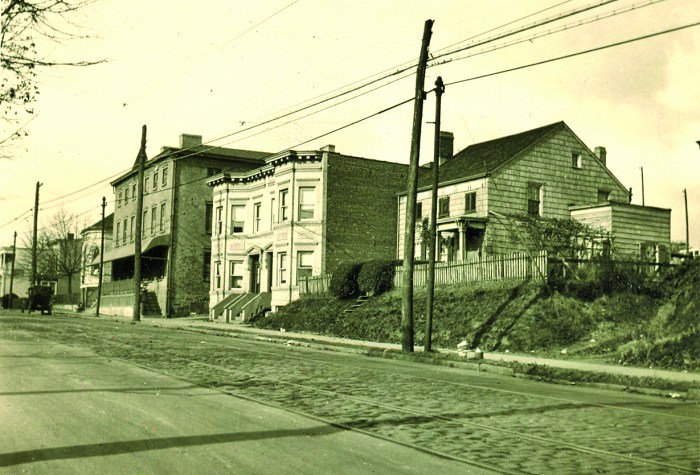Dozens of MTA subway stations could soon share names with corporate sponsors under a new “adopt-a-station” program Gov. Andrew Cuomo announced Thursday.
Depending on the size and traffic of the stations, businesses and civic organizations can contribute up to $600,000 annually to the MTA to adopt one of 72 select subway stations, according to Cuomo. The money would go toward improving security, maintenance and aesthetics. In turn, the stations could be rebranded to share the name of the businesses — similar to how the British bank Barclays’ name was attached to the subway station near its Brooklyn arena.
“We need to get more citizen participation in the MTA and we have to change our attitude. This is our MTA. This is our transit system,” Cuomo said at a breakfast sponsored by the Association for a Better New York. “There has to be an air of civic engagement, participation and investment in this system.”
The initiative was packaged with a separate, new subway partnership council, which businesses and civic organizations will be able to join to the tune of $250,000, the governor said.
The 72 stations eligible for adoption are either the busiest or dirtiest stations, based on rider complaints, according to Cuomo’s office. Each of the four boroughs with subway service has 18 stations available for adoption.
Few additional details were available on the partnership council or the adoption program and how they would visually impact stations. MTA chairman Joe Lhota said the plans were still in their early stages of development, but he added that he likes the idea of co-branding stations.
“That’s very possible,” Lhota said of the idea, during a news conference after Cuomo’s announcement. “The details have not been developed . . . we just have to see how it works. I want to review how other places have done adopt-a-stations.”
Other cities have had issues with the concept. Los Angeles quickly dropped similar plans after its Metro board members argued it would be a distasteful corporate encroachment of public space. They feared that making decisions on which companies can be sponsors could lead to lawsuits. Boston tried to sell naming rights to its T stations in 2014, only to receive one offer.
Estée Lauder, Blackstone, MasterCard and Hearst have all signed on to Cuomo’s station adoption proposal, according to the governor’s office. The agency’s arrangement with Barclays generates $200,000 a year for the MTA.
The agency already plasters ads all over the subway system — from station walls to steps and turnstiles. It’s also thrown significant new resources at keeping the system clean.
Following a pilot in January, the agency ordered 12 new portable vacuums that give workers a more nimble option to clean track debris. Through his yet-to-be funded, $800 million subway plan announced Tuesday, Lhota has said the agency would “enhance” what’s known as Operation Track Sweep, a cleaning initiative that last year instituted new crew schedules to re-prioritize cleanups as well as a two-week, systemwide cleaning blitz that involved 500 workers.
Cuomo and the MTA also wants the NYPD to ramp up its littering summonses, a civil offense that carries a $50 fine, after a track fire at the 145th Street station in Harlem crippled morning rush hour service recently. There were 79 summonses issued for the offense this year through July 24, 2017, according to NYPD Transit Assistant Chief Vincent Coogan.
“Public safety is important. Quality of life crimes are important — littering, well that’s just a nuisance; no, littering starts fires on the track and it is dangerous and we need the NYPD to step up and do that role,” Cuomo said. “The MTA does not exist in a vacuum . . . there are many factors that come into play for the MTA and it can’t solve its problems by itself.”

































